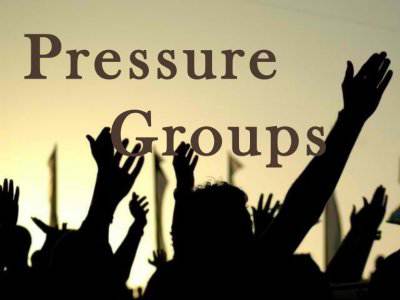Pressure groups have become an essential part of public administration and governance in Nigeria. These organizations aim to exert influence on the government’s administrative and political structures to promote their interests or to prevent their marginalization. In developing and underdeveloped countries like Nigeria, where resources are scarce and poverty is prevalent, the impact of pressure groups on the government process can be significant. They serve as a balancing factor in the structural equilibrium of the political system. This article will explore the definition of pressure groups and discuss the various types found in Nigeria.
Pressure Groups in Nigeria
1. Professional or Occupational Pressure Groups
Professional or occupational pressure groups consist of individuals who share the same profession or line of work. These groups are focused on advancing their professional interests and protecting the goals of their respective industries. They often resist government policies that do not benefit their members. Although the membership of these groups may not be large, their influence can lead to significant outcomes.
Examples include:
- Nigerian Medical Association (NMA)
- Nigerian Union of Teachers (NUT)
- Nigerian Bar Association (NBA)
2. Economic Pressure Groups
Economic pressure groups work to protect and promote the financial interests of their members while also considering the general welfare of the populace. They strive to influence government initiatives to ensure they favor the economic well-being of their members.
Examples include:
- Nigerian Association of Chambers of Commerce, Industry, Mines, and Agriculture (NACCIMA)
- Manufacturers Association of Nigeria (MAN)
3. Religious Pressure Groups
Religious pressure groups focus on protecting the interests of their members’ faiths. They aim to influence government policies to uphold their religious traditions and beliefs. These groups advocate for favorable public policies regarding their religion.
Examples include:
- Christian Association of Nigeria (CAN)
- Nigerian Supreme Council for Islamic Affairs (NSCIA)
4. Social Pressure Groups
Social pressure groups are typically formed by youth and aim to promote and protect their causes to influence government policies beneficial to their constituents. These groups often engage in community service and advocacy.
Examples include:
- Red Cross Society
- Boys Scouts of America
- Girls Brigade
5. Educational Pressure Groups
These groups advocate for the educational rights and interests of their members. They work to influence government policies unfavorable to education and strive to achieve their objectives through advocacy.
Examples include:
- Academic Staff Union of Universities (ASUU)
- Academic Staff Union of Polytechnics (ASUP)
- National Association of Nigerian Students (NANS)
6. Anomic Pressure Groups
Anomic pressure groups are characterized by a lack of structure and organization. They often resort to protests, rallies, strikes, and sometimes violent actions to achieve their goals. Members of these groups typically organize demonstrations to draw attention to their causes.
7. Promotional Pressure Groups
Promotional pressure groups aim to advance a cause that benefits society as a whole rather than just their members. They work toward broader social objectives and advocate for social justice and human rights.
Examples include:
- Human rights organizations
- Groups combating discrimination
8. Ethnic Pressure Groups
Ethnic pressure groups advocate for the interests of specific ethnic communities. They work to promote the welfare and rights of their ethnic groups in the political arena.
Examples include:
- Arewa Consultative Forum (ACF)
- Ohanaeze Ndigbo
- Ijaw Youth Council (IJC)
Conclusion
Pressure groups consist of individuals united by common interests, professions, or causes, working collectively to influence public policy to their advantage. Unlike political parties, pressure groups do not seek to govern or run for office, but they may support candidates who align with their objectives. They are typically funded through member contributions and operate effectively within their organizational structures.
Understanding the various types of pressure groups in Nigeria helps to appreciate their role in the political landscape and how they affect governance and public policy. This article has highlighted the different categories of pressure groups that exist in Nigeria, showcasing their significance in shaping the country’s socio-political environment.



